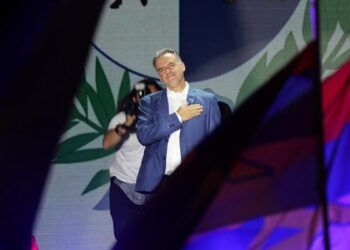Ronald Reagan, pictured here with wife Nancy, said in his 1981 inaugural address that “government is not the solution to our problem, government is the problem.”
National Archives/TNS
To subscribe, click here.
To submit a letter to the editor, click here.
To pitch a ‘My Turn’ guest column, email [email protected].
Want to purchase today’s print edition? Here’s a map of single-copy locations.
Sign up for our daily newsletter here

Showing eight times this weekend at Savoy 16: “Reagan,” the biographical drama of the lone U.S. president born in the Land of Lincoln. To mark the occasion, we asked this week’s panel: When you reflect on the life of Ronald Reagan, what’s the first image that pops into your head?

Champaign High grad Landon Parvin with President Ronald Reagan.
Provided
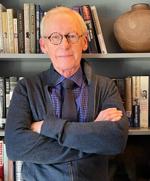
Landon Parvin
“The first image that immediately jumps to mind is a photo taken at his ranch that was quite popular while he was president. It’s a closeup of him wearing a cowboy hat and a blue work shirt, and he has a ruddy complexion and a smile on his face. It radiates geniality and health and confidence, and that’s truly who he was.
“But then I have so many other personal images of him over the years.
“Small things like when he was recovering from the assassination attempt and doing exercises as part of his recovery up in the residence of the White House, and he asked me to feel his bicep. He was quite proud of it, and it was surprisingly hard.
“Or large things, like working with him on coming to grips with the Iran-Contra debacle, as he wrestled with the idea that he traded arms for hostages, which he just couldn’t believe he would do.
“And, of course, funny things, like going to Washington’s comedy press dinners as he delivered jokes I would write, and then the sad things, too, like after he developed Alzheimer’s and Mrs. Reagan told me she had all these wonderful memories of those years and now no one to share them.
“So many things. I started working with the Reagans when I was young, and now I am not, but I have images and memories I will never forget.”

“Reagan giving his ‘tear down this wall’ speech in front of the Berlin Wall.
“The reason it’s so memorable is that Reagan and his PR team choreographed the speech so effectively. Too effectively, in fact.
“Most people think Reagan was president when the wall came down and the Cold War ended.
“People who worked in the first Bush Administration have been grumbling for years.”
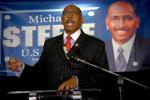
Michael Steele
Andre F. Chung/Baltimore Sun/MCT
“Reagan’s convention speech in 1976 was the moment I decided to become a Republican.
“In defeat, he showed leadership. In defeat, he showed grace and humor.
“In defeat, he showed a way forward and for this young man about to cast his first vote for president, that was the leadership I wanted to follow and the kind I leader I hoped to be one day.”

The Whiteside County town of Tampico (pop. 678) is Ronald Reagan’s birthplace — and proud of it.
“When I think of Ronald Reagan, the first thing that comes to mind is the day he died. It was just before my 12th birthday.
“I grew up on a farm north of Tampico, as the seventh generation to reside there. Living on the farm, we had horses and having horses means they need hay. I remember being north of Sterling getting hay with my dad. My dad and I were listening to the radio and talking when all of a sudden the music cuts off and a special broadcast comes on the station.
“The special broadcast was reporting the death of Ronald Reagan. I remember my dad pulling over alongside the road, truck and hay rack full of hay, to take in what we just heard. All of a sudden, my dad starts to cry; this is the first time I remember ever seeing him cry.
“At this point, I did not fully understand what was happening until my dad explained what was reported. All the way back to the farm, we talked about Reagan and what his impact on the world was.
“Growing up, I was always told when you tell people you are from Tampico, you always add it is where President Ronald Reagan was born. Most of the time people will argue and tell you that you are wrong and that he is from Dixon. I will admit before Reagan’s death, I don’t remember what the big deal was about him being born in Tampico.
“It was his death that put in perspective the pride that my fellow Tampiconians have for our small town. I went away for college and that is when I fully embraced this pride. Now that I have moved out on my own, I take pride in being from Tampico and being a volunteer at the Ronald Reagan Birthplace and Museum.
“While my dad and I don’t always see eye to eye on things, I will always be grateful for the sense of small town pride and my love of Ronald Reagan.”
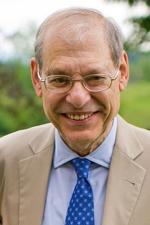
Robert Dallek
“I remember at the end of his term he seemed senile, suggesting an age limit on presidential candidates.”

“Viewing the polarized state of recent U.S. politics, the Reagan image that keeps on popping into my mind is what he said in his last public speech of note, an address to the Republican National Convention of 1992, before Alzheimer’s laid him low.
“‘We are the country of tomorrow. Our revolution did not end at Yorktown. More than two centuries late, America remains on a voyage of discovery, a land that has never become, but is always in the act of becoming.’
“I think this is a marvelous riposte to those at home and abroad who believe that America is in decline. Its best ideals of freedom, equality and democracy, if preserved, can carry it into the future and offer hope to all friendly nations.
“I see Reagan’s optimism about America as having been inculcated in him during his upbringing in the early 20th-century small-town Midwest, the most uber-American of the country’s various regions. I also regard Dixon, Illinois, as much more significant in making him into what he became than Hollywood, California.
“There were times, of course, when his optimism blinded him to some of the country’s faults but no one could accuse him of insincerity. It was also his desire, as he put it in the address cited above, to be remembered by his fellow citizens ‘for having appealed to your best hopes, not your worst fears, to your confidence rather than your doubts.’
“I don’t think he’d be happy in today’s political environment.
“One other thing: His innate modesty was remarkable, something that merits emulation today. Shortly after his inauguration, he wrote in his diary about his sense of wonderment at hearing ‘Hail to the Chief’ being played: ‘I don’t think I’m ever going to get used to the fact that they’re playing that song for me.’”
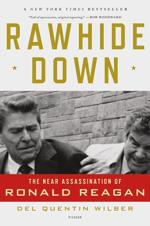
“The first thing that comes to mind isn’t exactly about Ronald Reagan; it’s a moment with Nancy, his widow. It was 2011, and my book had just been published.
“I had just given a talk at the Ronald Reagan Presidential Library and Museum with Jerry Parr, the Secret Service agent who saved Reagan’s life twice after the president was shot outside the Washington Hilton hotel on March 30, 1981.
“Nancy Reagan had been in the audience for the talk; that was a little nerve-racking because she had described the day of the assassination attempt as the worst one in her life. After the talk, Jerry and I joined Nancy Reagan and some of her friends for dinner in her private quarters at the library.
“As we munched on chicken pot pie, Nancy Reagan turned to Parr, touched the former agent on the arm and said: ‘Jerry, thanks for giving me my life back.’ It was an intimate moment full of sincerity. She spoke as if it was 1981 and her husband — who had died of natural causes in 2004 — had just gotten out of the hospital.
“I have thought a lot about that moment over the last decade and how the assassination attempt remained so seared in Nancy Reagan’s psyche, despite the passage of time. I wish I had something more profound to say about it. But that’s what comes to mind when I think of Ronald Reagan.”

“In a meeting with President Reagan after he had returned from his meeting with Gorbachev in Iceland, Reagan said he had noticed that Gorbachev kept referring to nuclear weapons in their discussion, and Reagan asked him whether he also meant strategic weapons such as ballistic missiles.
“At this point, (National Security Adviser) John Poindexter interjected that the elimination of all strategic weapons would be favorable to the U.S. because the Soviets have an advantage there. Reagan reacted against this, speaking uncharacteristically sharply: ‘No, John, I wouldn’t want to say that, I do want to eliminate all nuclear weapons eventually, and I don’t see how the Soviets can be expected to agree to the elimination only of strategic weapons.’
“This was an interesting exchange, to me, because Reagan almost never spoke sharply to his staff, especially to contradict them. It surprised me.
“One other point of interest about Reagan: In meetings in the Oval Office with visitors, when the meeting was to end at, say, 3 p.m., just before 3, I could see Reagan’s mind had turned to the joke he would use to end the meeting. Most meetings ended this way, and it was a Reagan characteristic to end them on time and not keep the next person — who would be sitting in his outer office — waiting.
“Sure enough, he recalled some funny story that had a relationship in some way to the conversation he was ending, and he told the story. It was always funny, and gave everyone the opportunity to stand up, say goodbye and leave in good humor.
“And sure enough, when the door was opened, there was some important person waiting patiently for his or her meeting with Reagan. Little things like this were an important part of his gentlemanly demeanor.”

“It was 48 hours before Reagan would be sworn in as president, and the two of us were alone in Blair House. We were putting final touches on his inaugural address. He was sitting in bed, resting between events, having toast, honey and coffee.
“He asked if I had been at the Lincoln Memorial ceremony the night before when the Mormon Tabernacle choir sang ‘God Bless America.’ I told him I had to miss it while working on the speech, so he described how emotional it was and that he almost cried ‘frozen tears’ in the cold.
“Then his eyes welled up again — there in front of me. I didn’t quite know how to handle the emotional moment. Just the two of us — the boy from Dixon, Illinois and the boy from Visalia, California, each coming so far from our roots.
“I didn’t want to lose it in front of the president-elect and was happy when Mrs. Reagan walked in with instructions on his next meeting. How could anyone forget a moment like that — never to be repeated in a lifetime?”

Manisha Sinha
“The first image that pops in my mind when I think of Reagan is that of a cowboy, him riding his horse in his California ranch, but not in a nice way.
“It seemed to epitomize Reagan’s cavalier attitude toward international law, the shoot-from-the-hips attitude of the lawless western frontier, whether it was the invasion of Grenada or the Iran-Contra scandal.
“It also reprises Reagan’s presidency as more of a fantasy than reality, the myth that he brought down the Berlin Wall when most know it was Gorbachev, the myth that he was this sunny optimist when he visited the Nazi Bitburg cemetery and Philadelphia, Mississippi, where Civil Rights workers were slain.
“This darker side to Reagan, his allusion to Black women as ‘welfare queens’ and his failure to respond to the AIDS epidemic, was hidden by his cheerful performance as a cowboy president, with one liners.
“For me, it epitomizes Reagan’s ability to act, an empty image, while his policies, including the trickle-down Reaganomics, deregulation of the economy, tax breaks for the wealthy, brought disaster to a vast majority of Americans and put the American economy on the road to recessions and large deficits.
“His destruction of the air flight controllers’ union has made us all less safe. And he just smiled and rode his way through it all.”

“It’s hard to pick just one memorable image for President Reagan because his life and presidency created so many of them. But if I had to pick one, it would be his Normandy speech in 1984 commemorating the 40th anniversary of D-Day.
“With aging veterans sitting around him, Reagan paid eloquent tribute to ‘the boys of Pointe du Hoc’ and made clear that the United States remained committed to the security of Europe. It was brilliant speechwriting by Peggy Noonan and a pitch-perfect delivery.
“I will always picture in my mind Reagan speaking at the lectern on that cliff with the English Channel as a dramatic backdrop.”
Source link : http://www.bing.com/news/apiclick.aspx?ref=FexRss&aid=&tid=66dc7f0a30194561a27195df601d312c&url=https%3A%2F%2Fwww.news-gazette.com%2Fnews%2Flocal%2Fhistory%2Fbig-10-remembering-ronald-reagan%2Farticle_0350ed44-6bb9-11ef-ad17-b34fe077a60d.html&c=4568998703797060696&mkt=en-us
Author :
Publish date : 2024-09-07 03:59:00
Copyright for syndicated content belongs to the linked Source.




